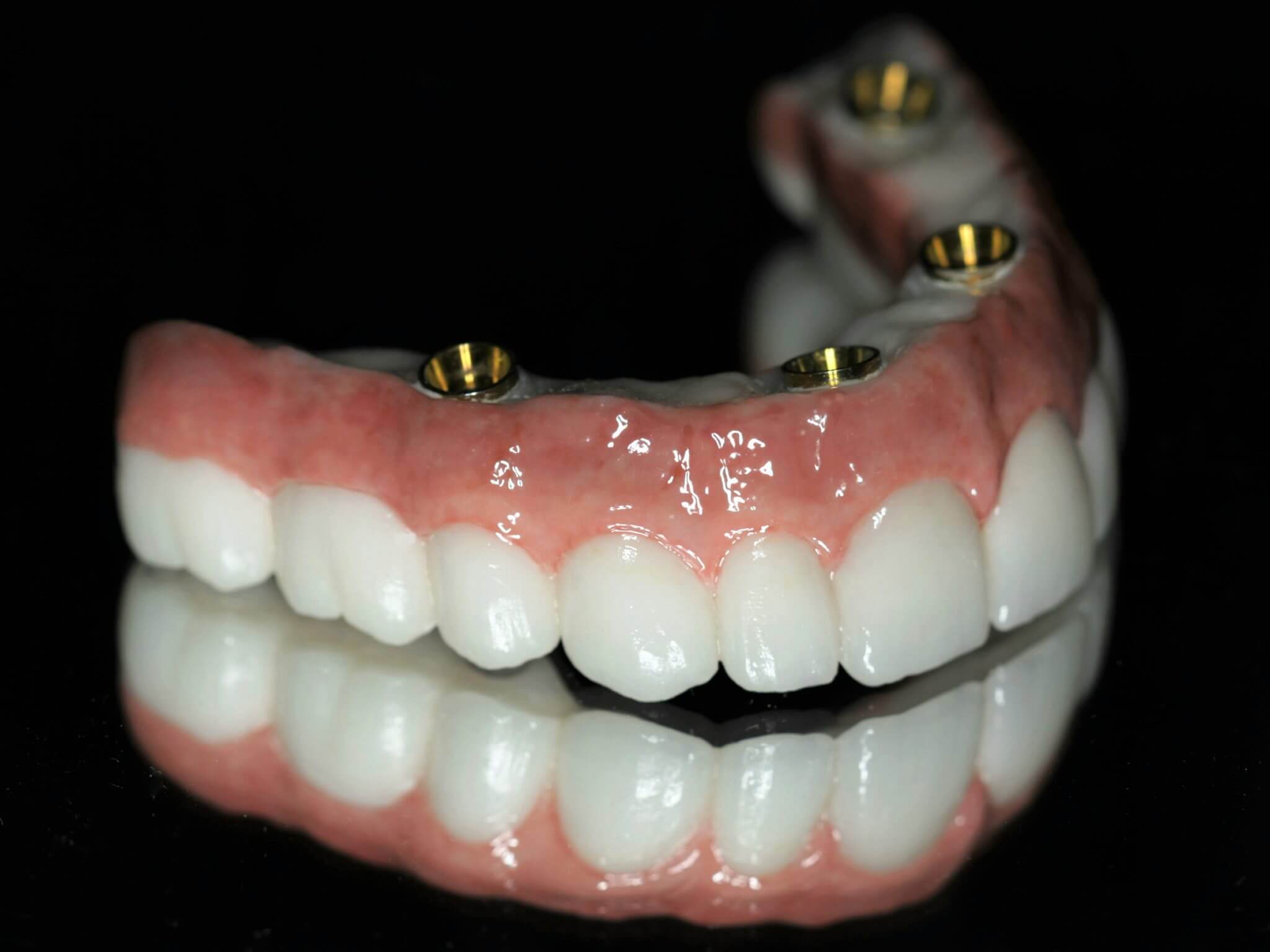Some Known Questions About Dental Sense.
Some Known Questions About Dental Sense.
Blog Article
The Basic Principles Of Dental Sense
Table of ContentsHow Dental Sense can Save You Time, Stress, and Money.6 Easy Facts About Dental Sense ShownHow Dental Sense can Save You Time, Stress, and Money.The Greatest Guide To Dental Sense
are medical gadgets operatively implanted into the jaw to bring back an individual's ability to chew or their appearance. They give assistance for artificial (fake) teeth, such as crowns, bridges, or dentures. When a tooth is lost as a result of injury or condition, an individual can experience difficulties such as rapid bone loss, faulty speech, or changes to chewing patterns that result in pain.Dental implant systems include a dental implant body and oral implant abutment and may also consist of an abutment fixation screw. Cosmetic dentistry services. The oral implant body is surgically inserted in the jawbone instead of the tooth's origin. The oral implant abutment is usually connected to the implant body by the abutment addiction screw and extends via gums into the mouth to sustain the attached fabricated teeth
(https://pastebin.com/u/dentalsense1)Structure of The Dental Implant System picking dental implants, talk to your dental provider regarding the potential advantages and dangers, and whether you are a prospect for the treatment. Points to take into consideration: Your overall health is an essential consider identifying whether you are a great prospect for dental implants, just how long it will certainly require to heal, and how much time the implant may remain in location.
Smoking cigarettes may affect the healing process and lower the long-lasting success of the dental implant. The healing process for the implant body might take a number of months or longer, during which time you typically have a short-term joint instead of the tooth. the oral implant treatment: Carefully comply with the oral hygiene instructions offered to you by your dental provider.
Not known Facts About Dental Sense
Implant failure can lead to the need for an additional operation to fix or change the implant system. Restores the ability to chew Brings back cosmetic appearance Aids maintain the jawbone from shrinking as a result of bone loss Maintains the wellness of the bordering bone and gum tissues Assists keep nearby (nearby) teeth secure Improves lifestyle Damage to bordering all-natural teeth throughout implant placement Injury to the surrounding tissues throughout surgical procedure, such as sinus opening Injury throughout surgical procedure (for instance, fracture of surrounding jawbone) Inadequate function, such as seeming like the teeth do not bite together generally A feeling that the tooth hangs or twisting in area arising from an abutment screw loosening Implant body failure (looseness of the implant body) due to systemic infection, which might be most likely in patients with uncontrolled diabetes due to local infection in bone and gum tissues supporting the dental implant body as a result of postponed healing, which might be most likely in people who smoke Trouble cleansing the gum tissues around the implant, leading to poor dental hygiene Neglected periodontal illness Post-surgical feeling numb because of nerve impingement or damages Always inform wellness treatment suppliers and imaging specialists that you have oral implants prior to any magnetic vibration imaging (MRI) or x-ray treatments.
FDA is not conscious of any unfavorable events reported for MRI or x-ray treatments with dental implants. Oral implants systems are typically constructed from products that adhere to global consensus requirements of the International Organization for Standardization (ISO) or ASTM International. These criteria have information of what makes a safe product.

A dental implant is a structure that changes a missing out on tooth. With screw-like tools, the cosmetic surgeon inserts a dental implant into the jawbone, and it acts as an anchor for a fabricated tooth, called a crown.
The Ultimate Guide To Dental Sense
Some people are not eligible for dental implant surgical treatment. It is for oral cosmetic surgeons to run on individuals with: severe illnessuncontrollable metabolic diseasebone or soft tissue disease or infectionIf these problems are settled, an individual can have the surgery. In, oral surgeons abstain from operating individuals with: If individuals with any of the above undergo oral implant surgical procedure, there is a higher danger of the implant falling short.

Oral dental implant surgical treatment is a customized process. It's not the very same for every person. However the adhering to provides a general introduction of what you can have a peek at this site expect your dentist, oral cosmetic surgeon, periodontist or prosthodontist to do: Position the dental implant operatively. Give you time to recover. Affix the article and last crown, bridge or denture.
Next, your specialist will very carefully position the dental implant into your jaw. If your implant is near the front of your mouth, your dentist will certainly make a temporary tooth for you to use up until you heal.
Rumored Buzz on Dental Sense
Your provider can inform you what to expect in your situation. During the healing phase, your jawbone should fuse to the dental implant. This procedure, called osseointegration, is crucial for stability and long-term success. This procedure can take anywhere from 3 to 9 months. In many cases, it might take much longer.
When your implant heals, your dental professional can connect the abutment (small adapter article) and your final restoration (crown, bridge or denture). This usually takes concerning one hour to finish and may require a 2nd small surgery. You shouldn't really feel any type of pain during your oral implant treatment due to the fact that your service provider will use medicine to numb your gums.
Report this page